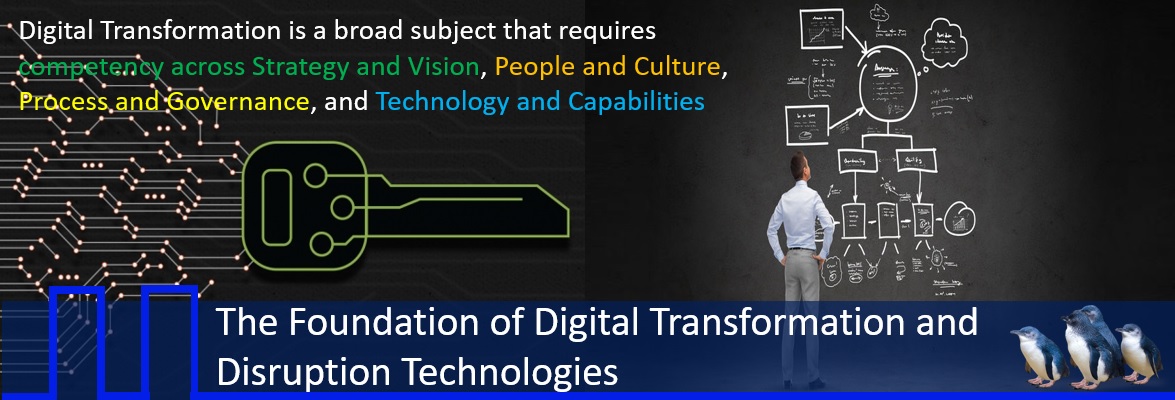| Course
Title |
: The
Foundation of Digital Transformation and
Disruption Technologies |
| Course
Duration |
: Two-Day
Face-to-Face Instructor-led Workshop -
Classroom
|
| Course Fee |
: Available
upon request (Write to us at info@tlcpak.com) |
| Course
Location |
: TLC
Office, Customer Onsite & Online |
| Course Code |
: TN210 |
| Deliverables |
:
Comprehensive Student Guide and Workshop
Certificate |
Customer onsite
workshop can also be conducted for customers in
Lahore, and Islamabad
PURPOSE:
This course is
designed to provide you all what is needed to
fundamental knowledge on Digital Transformation and
Disruption technologies.
Digital
transformation is a hot topic but what exactly is it
and what does it mean for different organization? In
this session, we talk about digital transformation
in two ways. First we discuss the pace of change and
the imperative it creates for businesses. Next we
provide the context for this transformation and what
it takes to win in the digital age.
In a nut shell,
Digital Transformation is a broad subject that
requires competency across Strategy and Vision,
People and Culture, Process and Governance, and
Technology and Capabilities.
By the end of this
course, you'll be able to:
- Describe the
underlying economics of innovation, technology,
and market disruptions.
- Weigh the
pros and cons of current digital technologies
driving advancement and more.
ABOUT THE
INSTRUCTOR
Training will be
delivered by an experienced TOGAF 9 Certified
trainer, practicing
TOGAF EAF for over 12 plus years,
with 30+ years of career experience imparting
education and training services both locally and
internationally and have served international
enterprise technology vendors including IBM,
Fujitsu, and ICL.
Our instructor holds various industry professional
certifications in the space of enterprise servers
and storage technologies, Information Security,
Enterprise Architecture, Blockchain, ITIL, Cloud,
Virtualization, Green IT, and a co-author of 10
IBM Redbooks and have designed and developed 70
plus courses based on storage, information
security, cybersecurity, enterprise architecture,
Blockchain, Open Banking Framework and digital
technologies stacks.
The training course
flow will be a mix of lectures & classroom
discussions so that participants can have a detailed
understanding of various components of technologies
causing digital disruption.
AUDIENCE:
This course is
intended for;
- Customers who
want to build their knowledge in the space of
Digital Transformation and Disruption technologies
and want to understand how to smartly tackle the
upcoming challenges associated to their present
business.
- CIO, CDO,
CMO, CTO, CISO, Business Analysts and Business
Technology Leaders, Senior HR Leaders, IT
Directors and IT Managers, Application/Database
teams, Audit, Risk and Compliance, Enterprise
Architects, Information Security and Cybersecurity
professionals, IT Operations, Project Managers,
Business Analysts, and Technical Writers.
- Senior
technology managers and leaders who want to
refresh their knowledge in digital emerging
technologies.
- Technology
and Sales Specialists who want to equipped
themselves with the foundational knowledge to
up-sell and cross-sell solutions based digital
disruptive technologies.
Workshop
Summary
In
summary, Disruption is not new, and we can learn
from the past how to thrive given the constant
disruptions that are the hallmark of the digital
age. In this session, we will explore the
foundations of digital transformation and the nature
of the competitive life cycle. We will look at the
underlying economics of innovation and technological
change.
PREREQUISITES:
Participants
attending this course should be familiar with basic
Information Technology (IT) concepts and the role of
general system wide infrastructure technologies and
their applications.
COURSE
OUTLINE
Unit 1 – Understanding
the Foundation of Digital
Transformation and
Disruption
- The
world is getting disruptive.
- The
Evolution of Data increases storage
security threats.
- Exponential
Data Growth – Some key facts and
figures.
- Transformation
journey from Legacy to Digital
technologies.
- Understand
Digital Transformation and challenges of
Digital Transformation.
- Digital
Transformation –Key dimensions.
- The
Application of Digital Transformation.
- Meeting
growing Customer Expectations.
- Understanding
Design Thinking and Crowd-sourcing.
- Understanding
Customer Experience Management.
- How
to create a good customer experience
strategy.
- How
Technology Leaders can drive Digital
Transformation.
- THRIVE
- The Digital Transformation Framework.
- Four
main organizational goals for Digital
Transformation Strategy.
- Understanding
Digital Disruption.
- Causes
of Digital Disruption and
Transformation.
- Digital
transformation from technology
perspective.
- Understanding
System of Records, System of Engagement
& System of Interaction.
- Developing
three core capabilities across various
business domains.
- Goals
to accomplish a successful Digital
Transformation Journey.
- Top
10 technology trends to watch in 2023
and beyond.
- Unit
1 Assessment.
Unit 2 – Robotic
Process Automation Fundamentals
- An
Insight to Robotic and Intelligent
Process Automation.
- Understand
Robotic Process Automation (RPA).
- Doing
versus Thinking – Process Driven Vs.
Data Driven.
- Understanding
screen scraping in RPA.
- Automation
Capabilities supported by RPA.
- RPA
Typical Business Processes.
- Key
RPA Statistics and how does RPA Work?
- Key
Business Process targets for RPA.
- Differentiation
between AI and RPA.
- RPA
in different Industries – Use Cases.
- RPA
Tools and types of RPA’s.
- Describe
RPA Lifecycle Phases and Development
Lifecycle.
- RPA
Workflow and four Critical Stages of
Implementation.
- RPA
Solution Framework.
- Distinguishing
Attended & Unattended Robots
collaborations.
- How
RPA’s impact on banking and finance
industry.
- Keys
to a Successful RPA Implementation.
- What
to look for in RPA software.
- Six
reasons why Self–Service options fail.
- Unit
2 Assessment.
|
Unit 3 – Introduction
to Artificial Intelligence
- What
is Artificial Intelligence?
- Understanding
two types of Artificial Intelligence.
- Elaborating
Cognitive Computing.
- Cognitive
Computing Framework.
- Rational
Decisions from AI point of view.
- Maximizing
your expected utility –What About the
Brain?
- A
Short History of Artificial
Intelligence.
- Rational
Decision Making vs. Other Types of
Decision Making.
- Foundational
Building Blocks and Key Elements of AI.
- Building
and understanding AI Capabilities.
- The
role of Natural Language Understanding.
- Building
AI Capabilities in a business context.
- Identifying
Opportunities –AI requires a vision to
achieve.
- Strategy
for executive leadership for AI
Implementations.
- The
convergence of people, process &
technology.
- Operationalizing
AI with Supporting Technologies.
- 7
critical challenges that need to be
addressed by AI.
- Where
are we now? What AI can do today?
- Areas
of AI and Some Dependencies –Conclusion.
- A
Short History of Artificial
Intelligence.
- Unit
3 Assessment.
Unit 4 – Blockchain
- A New Technology for Business
Leaders
-
Blockchain behind
the hype and the Problem Era.
-
What is a
Blockchain and How does Blockchain
work?
-
Understanding
Ledgers, Transaction & Contract in
general.
-
Components of a
Blockchain solution.
-
Actors in a
Blockchain solution.
-
Four fundamental
components of a Blockchain for
business.
-
Why Blockchain is
relevant for business – Benefits.
-
Understanding
Public vs Private Blockchain.
-
Public and
Private Blockchain Application
Platforms providers.
-
Benefits of using
Blockchain technology.
-
Blockchain
Technology Stack.
- Understanding
Smart
Contacts.
-
How can Blockchain impact an
entire industry? Use Case.
-
Industries powered by
Blockchain.
-
What is the easiest way to
start with Blockchain?
-
Recommended Blockchain
engagement model overview.
-
A comparison between
Blockchain and Database – Summary.
-
Unit 4 Assessment.
|
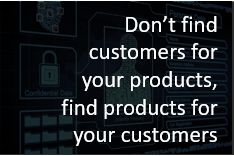  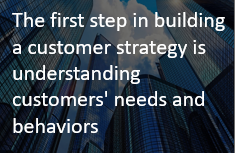  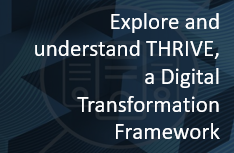  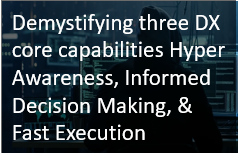  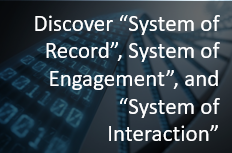  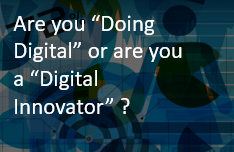

|







